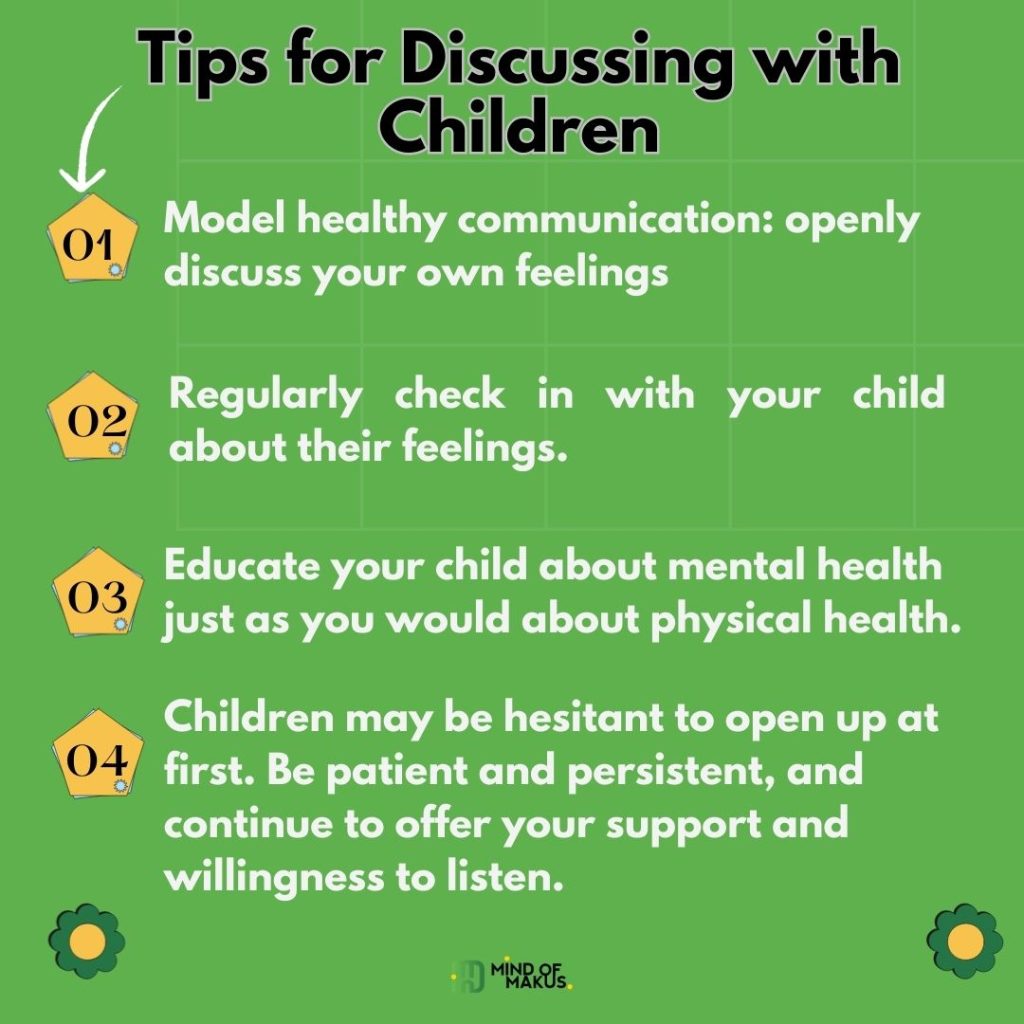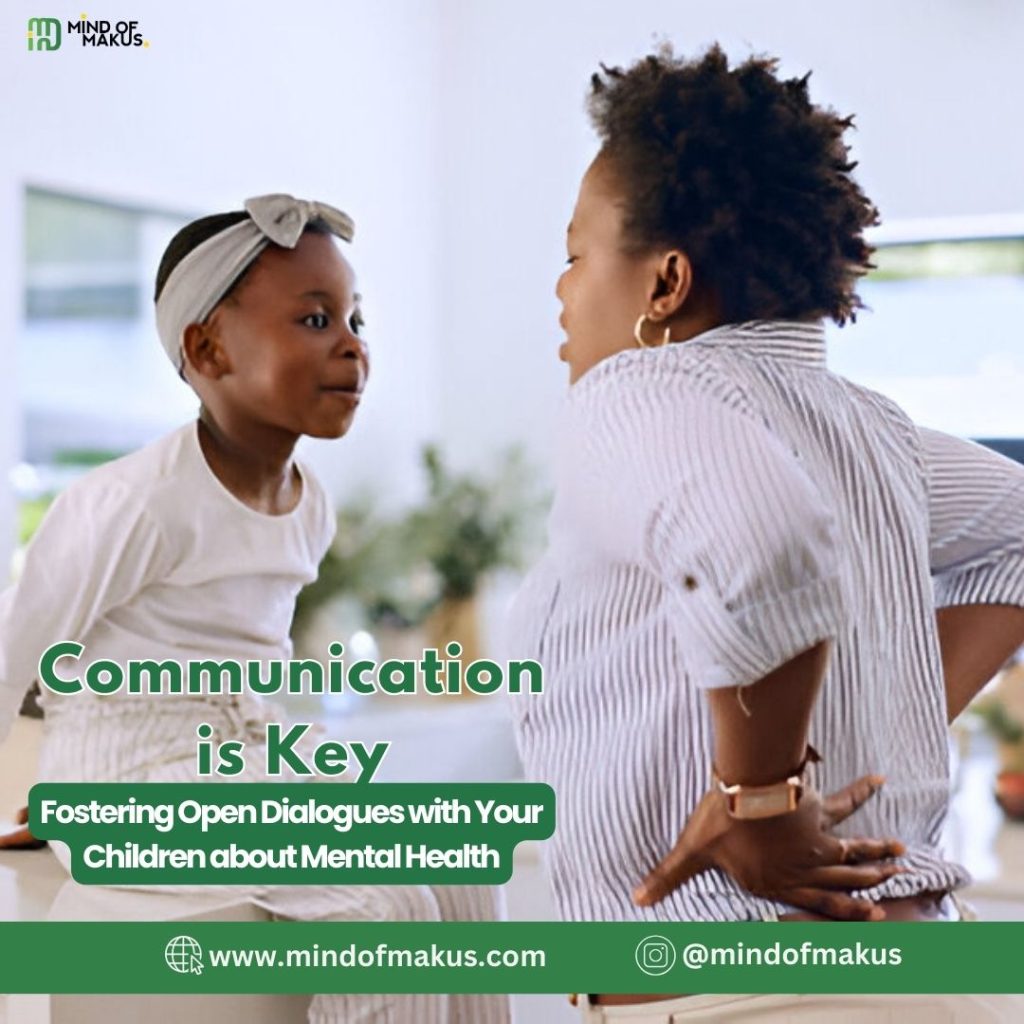Hello friends,
I hope you are keeping well this week. It’s been one where I have tried to pump energy into my psyche and get myself over a fatigue phase. If I was a bear it would be time to hibernate. I am listening to my body and taken time to sleep well, exercise and stay hydrated.
We are discussing parenting and the impact on mental health the importance of that special relationship we develop with our children over the course of the short time we have with them.
I remember realizing suddenly, when we were about to leave the hospital with our baby, that no one was going to give us any classes or teach us what to do with the baby, and they were letting us just go into the world with a whole new person who depended solely on us for survival. The shock!


As parents, one of our most important roles is to create a safe and supportive environment for our children, especially when it comes to their mental health. We can get distracted from this and think that our role is limited to physical need provision. Let’s look into what a parent can do to support kids beyond providing shelter, food and education.
Fostering open dialogues about mental health can help children feel understood, reduce stigma, and encourage them to seek help when needed. Here are some expert tips on how to communicate effectively with your children about mental health.
Open communication about mental health lays the foundation for a healthy relationship between you and your children. It helps them understand that it’s okay to talk about their feelings and seek support. Here’s why open communication is crucial:
– Reduces Stigma: Talking openly about mental health can help normalize it and reduce the stigma associated with mental health issues.
– Builds Trust: When children feel heard and understood, it strengthens their trust in you and makes them more likely to share their feelings in the future.
– Promotes Emotional Well-being: Open dialogues can help children process their emotions, leading to better emotional regulation and overall well-being.


Tips for Fostering Open Dialogues
1.Create a Safe Space
Ensure that your child feels safe and comfortable talking about their feelings. Be non-judgmental and empathetic, and let them know that their feelings are valid and important.
2. Be a Good Listener
Active listening is key. Pay attention to what your child is saying without interrupting or offering immediate solutions. Sometimes, just being heard can make a big difference.
3. Use Age-Appropriate Language
Tailor your language to your child’s age and understanding. Younger children may need simpler explanations, while older children and teens can handle more complex discussions.
4. Share Your Own Experiences
Sharing your own experiences with mental health can help normalize the conversation and show your child that it’s okay to talk about these issues. Be honest but appropriate with what you share.
5. Ask Open-Ended Questions
Encourage your child to express themselves by asking open-ended questions. Instead of asking, “Are you okay?” try asking, “How are you feeling today?” or “What’s been on your mind lately?”
6. Validate Their Feelings
Let your child know that it’s okay to feel sad, anxious, or upset. Validate their emotions by acknowledging their feelings and expressing understanding and support.
7. Provide Reassurance
Reassure your child that experiencing mental health challenges is normal and that help is available. Let them know that they are not alone and that you are there to support them.
8. Encourage Healthy Coping Strategies
Teach your child healthy ways to cope with their emotions, such as deep breathing, journaling, physical activity, or talking to a trusted friend or family member.
Building a Culture of Openness
1. Model Healthy Communication
Children learn by observing their parents. Model healthy communication by openly discussing your own feelings and demonstrating effective coping strategies.
2. Regular Check-Ins
Make it a habit to regularly check in with your child about their feelings. This can be during family meals, bedtime, or any other routine time when you can have a quiet conversation.
There is a concept I came across on a podcast, it involves putting aside a specific time for each child and doing things together.


3. Educate About Mental Health
Educate your child about mental health just as you would about physical health. Explain that mental health is an important part of overall well-being and that everyone experiences ups and downs. Teach them how to maintain a good balance and to be versatile in the way they use tools for positive well-being.
4. Be Patient and Persistent
Some children may be hesitant to open up at first. Be patient and persistent, and continue to offer your support and willingness to listen.
Keep an open mind and explore a variety of events, styles and activities with them.


Fostering open dialogues with your children about mental health is an ongoing process that requires patience, empathy, and understanding. By creating a safe space, actively listening, and validating their feelings, you can help your children feel comfortable discussing their mental health. Remember, it’s okay to seek professional help if needed, and the most important thing is to ensure your child knows they are loved and supported.
You can Support My Work
Open communication about mental health can make a significant difference in your child’s life. Start the conversation today and continue to build a culture of openness and support within your family.
I hope these tips help you foster open and supportive dialogues with your children about mental health. Have you had conversations about mental health with your children? Share your experiences and tips in the comments below.
Until next time, stay authentic,
Stay resilient, and continue to honour your needs.
Live wholeheartedly,
Amaka
2 Cor 3:2(MSG)
You yourselves are all the endorsement we need. Your very lives are a letter that anyone can read by just looking at you. Christ himself wrote it—not with ink, but with God’s living Spirit; not chiseled into stone, but carved into human lives—and we publish it.



